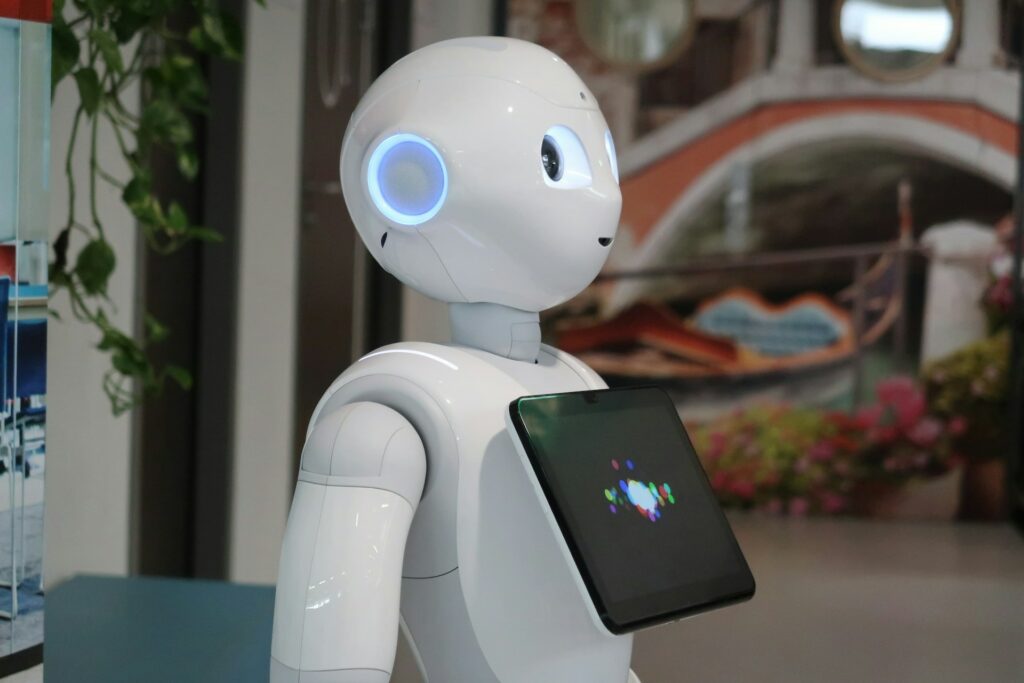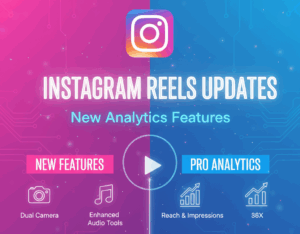In the year 2025, artificial intelligence chatbots will take the place of customer service representatives across all social platforms.

In the year 2025, artificial intelligence chatbots will take the place of customer service representatives across all social platforms.
In the year 2025, artificial intelligence chatbots are revolutionizing the manner in which companies connect with consumers across various social media platforms. Customer service has always been an essential component of a brand’s reputation. Communication is being streamlined, customer experience is being improved, and operational costs are being reduced for businesses of all kinds thanks to chatbots driven by artificial intelligence. Chatbots provide rapid replies and tailored suggestions.
This article analyses the ways in which artificial intelligence chatbots are transforming customer service on social platforms, as well as the advantages and disadvantages of this technology, and it speculates on what the future holds for both customers and companies.
An Examination of the Development of Customer Service on Social Media
Facebook, Instagram, WhatsApp, and Twitter are just some of the social media sites that have emerged as essential avenues for communicating with customers. Customers have come to anticipate rapid replies, support in real time, and availability around the clock.
It is difficult for traditional human-based assistance to satisfy these needs because of the high expenses involved, the limited number of staff members available, and the delayed response times. AI chatbots have been given the right chance to fill this gap, which has provided the perfect opportunity for them to automate regular encounters while yet keeping customization.
1. Chatbots powered by artificial intelligence are revolutionizing the game in a number of ways.
Regardless of the time zone or the business hours, AI chatbots are able to deliver instant solutions to questions you may have. Customers are no longer have to wait for a phone call or an email response, which results in a considerable increase in customer satisfaction.
2. Managing a High Number of Concurrent Interactions
It is not uncommon for businesses to get hundreds of queries from customers all at once. In order to reduce bottlenecks and lengthy wait times, artificial intelligence chatbots are able to conduct several conversations at the same time without compromising accuracy or quality.
3. A Tailored and Personalized Shopper Experience
Machine learning and client data are used by contemporary artificial intelligence chatbots in order to provide tailored suggestions, follow-ups, and solutions. A chatbot, for instance, might make product recommendations based on previous purchases or walk customers through troubleshooting procedures that are specific to the problem they are experiencing.
4. Compatibility with digital commerce and service platforms
Users are able to make purchases, arrange appointments, or access services without having to leave the app entirely thanks to the integration of artificial intelligence chatbots directly into social platforms. Because of this seamless experience, conversion rates are greater, and convenience will be increased.
5. Some Advantages for Brands
Maintaining the same level of service quality while reducing the need for huge customer support staff is one example of economic efficiency.
- Scalability is the capacity to manage expanding client bases and times of high demand without the need for more resources.
- Collects real-time feedback and analytics in order to enhance goods, services, and marketing tactics. This is what is known as “data insights.”
- Consistency: Offers replies that are accurate and consistent, hence lowering the likelihood of human mistake.
6. Considerations and Obstacles to Overcome
In spite of the benefits, companies are required to overcome the possible difficulties including:
- An excessive dependence on artificial intelligence might give the impression of impersonality; human agents are still required for dealing with situations that are either complicated or sensitive.
- The ability to comprehend language and context is essential for chatbots, since they must effectively grasp subtleties, slang, and emotions in order to prevent misunderstandings.
- For reasons of privacy and security, it is of the utmost importance to manage consumer data in a safe manner, particularly when chatbots are operating on social platforms that have enormous user bases.
- The integration of artificial intelligence chatbots with different platforms and legacy systems may be a challenging endeavor that requires a large amount of work.
Actual Applications in the World
- Retail responsibilities include responding to frequently asked questions, assisting customers in making product selections, and processing orders via Instagram or Facebook Shops.
- Assistance with reservations, provision of real-time travel information, and management of cancellations are all part of the travel and hospitality industry.
- Managing service difficulties, responding to billing queries, and addressing technical issues are all part of the telecom and utilities department.
- Offering ticket purchasing, event information, and subscription management directly on social applications is a service that is offered by the entertainment and media industry.
- The following use examples illustrate how artificial intelligence chatbots are rapidly becoming indispensable tools for client interaction across all sectors.
The Prospects for Artificial Intelligence Chatbots on Social Platforms
AI chatbots are anticipated to undergo additional development by the year 2025 and beyond:
- The advancements in conversational artificial intelligence will allow chatbots to better comprehend emotions, context, and purpose, which will result in encounters that seem more human-like.
- Voice-Activated Assistance is the integration of voice commands for help that does not need the use of hands.
- Omni-Channel Support refers to the provision of unified chatbots that are capable of managing queries across a variety of social networks, applications, and websites.
- AI will anticipate consumers’ requirements and proactively propose solutions before they ever ask for them. This is what is known as predictive customer service.
- For companies, the transition toward assistance powered by artificial intelligence represents a strategic upheaval in the way they communicate with their audiences.
In 2025, artificial intelligence chatbots are bringing about a revolution in consumer service across social media platforms. By delivering help that is quick, individualized, and scalable, they are improving the user experience, lowering costs, and giving companies with insights that can be put into action.
A hybrid strategy, in which artificial intelligence is used to handle ordinary queries while human agents concentrate on more sophisticated or high-value encounters, is where the future lies. Those companies that embrace artificial intelligence chatbots with careful consideration will gain a competitive advantage by giving their social media audiences with experiences that are frictionless, responsive, and rewarding.







